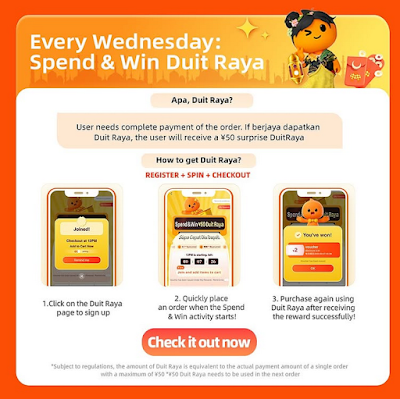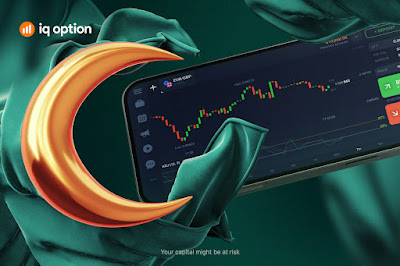 |
| Source: Taobao Malaysia Instagram page. Duit Raya is up for grabs on Wednesdays in March. |
Taobao Malaysia is ushering in its first-ever sales campaign dedicated to the Ramadhan and Raya season. Running throughout March, the month-long campaign features promotions, daily free shipping vouchers, and curated festive essentials.
Following the successful introduction of its English interface in September last year, Taobao Malaysia continues its commitment to making the platform more accessible to local users with tailored shopping solutions and promotions via the Raya campaign.
Jess Lew, Country Head of Taobao Malaysia said: "We are thrilled to celebrate one of our country's biggest festive moments together with our first-ever Raya campaign. We have prepared an abundance of promotions to make it easier and more rewarding for our customers to shop for their festive needs. With the successful implementation of the English interface, we can further enhance the shopping experience, ensuring that everyone can easily access the Taobao platform and shop effortlessly."
The Last Call Raya Sale will be held from 23 to 31 March.
On top of these shoppers have the chance to grab a limited-time offer, and an RMB35 voucher (equivalent to RM21) to enjoy free shipping with no minimum spend required during this promotion period. For first-time Taobao shoppers, deals for as low as RMB1 (equivalent to RM0.62) are up for grabs.
Taobao Malaysia is also introducing the Spend & Win Duit Raya promotion. Shoppers stand a chance to win up to RMB50 (equivalent to RM30) in duit Raya every Wednesday in March at 12 pm when they make a purchase, with 100 winners per day. The duit Raya will be in the form of a cashback amount, and equivalent to the amount shoppers spend, capped at RMB50 (equivalent to RM30).
"We hope to build a more holistic shopping environment with the promise of delivering our biggest promotion in Malaysia ever. We believe Malaysians will be able to save more and enjoy more this festive season," said Lew.
Explore
The Taobao app is available to download on both the Apple App Store and Google Play.
Watch the associated video at https://www.tiktok.com/@taobao.malaysia/video/7478181353075313927
*Platform rules will prevail over the specific promotion details.














